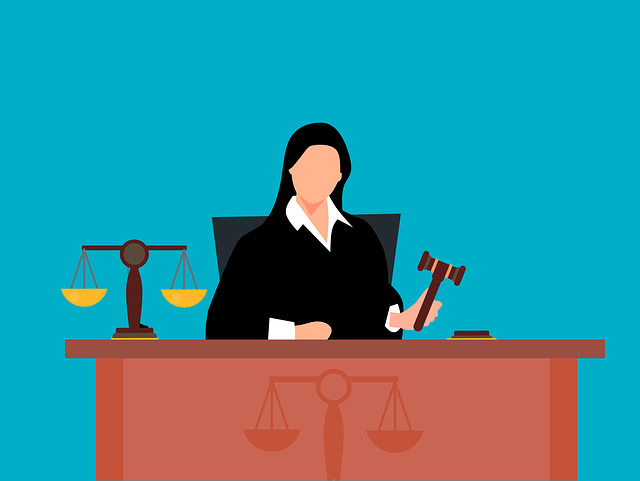TL;DR:
C-Level Investigations require a deep understanding of corporate law and structures, especially during criminal proceedings where skilled general criminal defense attorneys navigate high-profile cases. Individuals facing complex charges like white-collar crime have the right to appeal criminal sentence decisions. A successful appeal focuses on procedural errors, sentencing guidelines, or insufficient evidence, aiming for reduced sentences or a complete reversal. Navigating legal complexities and seeking expert representation are key to achieving justice in these high-stakes cases. Agile legal teams scrutinize evidence, expose inconsistencies, and leverage testimonies to secure favorable outcomes.
“In the complex world of criminal justice, understanding the intricacies of C-Level investigations is paramount. This article delves into the critical aspect of appealing a criminal sentence decision, offering a comprehensive guide for navigating legal complexities. From recognizing grounds for appeal to mastering the legal landscape, we explore strategies that have led to successful reversals. Get ready to unravel the process, gain insights from real-life success stories, and discover how to challenge criminal sentencing effectively.”
- Understanding C-Level Investigations: A Deep Dive
- When Criminal Sentencing Needs Scrutiny: Grounds for Appeal
- Navigating the Legal Landscape: Appealing a Sentence
- Strategies and Success Stories: Reversing Criminal Decisions
Understanding C-Level Investigations: A Deep Dive

C-Level Investigations refer to detailed inquiries into high-profile or sensitive matters involving senior executives and top-level decision-makers (C-Suite). These investigations are often complex, requiring a deep understanding of corporate structures, legal frameworks, and strategic considerations unique to such high-stakes cases. When facing criminal charges, individuals at the C-level require robust general criminal defense strategies that account for the intricate dynamics of their roles and organizations.
Appealing a Criminal Sentence Decision is a critical aspect of these investigations, especially when navigating complex corporate crimes. Skilled legal representatives specializing in general criminal defense can help navigate the intricacies of high-profile cases, ensuring a fair process and advocating for favorable outcomes. Through meticulous review of evidence, procedural errors, and legal precedents, they aim to win challenging defense verdicts that protect the rights and reputations of their clients.
When Criminal Sentencing Needs Scrutiny: Grounds for Appeal

When a criminal sentencing decision warrants scrutiny, individuals have the right to appeal. Grounds for appeal can arise from various factors, especially in complex cases involving white-collar and economic crimes. These appeals are crucial in ensuring fairness and accuracy in the judicial process. A compelling argument may center around procedural errors, unlawful sentencing guidelines, or insufficient evidence supporting the imposed sentence.
A winning challenging defense verdict in such instances requires meticulous attention to detail and a thorough understanding of the law. The white-collar defense strategy should address any potential violations, misapplications of laws, or disparities in similar cases. By presenting compelling evidence and legal arguments, defendants can advocate for a reduced sentence or even a complete reversal, ultimately seeking justice and fairness in their particular circumstances.
Navigating the Legal Landscape: Appealing a Sentence

Navigating the complex legal landscape surrounding criminal sentences is a critical aspect of any investigation, especially when dealing with white-collar and economic crimes. The process of appealing a criminal sentence decision can be intricate, but it offers individuals an opportunity to advocate for their rights and seek justice. Understanding the legal framework and procedural steps involved is essential for a successful appeal.
For clients facing charges or those who have been convicted, appealing a criminal sentence can provide a path to avoiding indictment or securing more favorable outcomes. Skilled legal representation is crucial in these cases, as it ensures that all grounds for appeal are thoroughly examined and presented effectively. By delving into the specifics of the case, examining procedural errors, or arguing against excessive sentencing, lawyers can navigate this labyrinthine process on their clients’ behalf.
Strategies and Success Stories: Reversing Criminal Decisions

In the realm of legal strategy, reversing criminal decisions through appeals is a specialized art, especially in high-stakes cases involving white-collar and economic crimes. C-Level executives and respective businesses often find themselves navigating complex landscapes when appealing a criminal sentence decision. A successful appeal requires meticulous review of evidence, prior legal precedents, and the ability to present compelling arguments that highlight procedural errors or misinterpretations of facts.
Many success stories in reversing criminal decisions can be attributed to agile legal teams who employ innovative strategies tailored to each unique case. These efforts often involve scrutinizing the prosecution’s evidence, exposing inconsistencies, and leveraging expert testimonies to support new interpretations of the law. By presenting a robust defense that addresses both the factual and legal aspects of the crime, appeals attorneys have successfully altered criminal sentence outcomes, offering relief and a renewed sense of fairness for those wrongfully convicted or overcharged.
C-Level investigations, delving into the intricate world of criminal sentencing appeals, offer a glimmer of hope for those seeking justice. Understanding the legal landscape and employing strategic approaches can lead to successful reversals of criminal decisions. By examining grounds for appeal, navigating the legal process, and learning from success stories, individuals can ensure their rights are protected. Remember that, in pursuing an appeal, it’s crucial to act promptly and consult professionals who can guide them through this complex journey, ultimately aiming to achieve a fair outcome.






